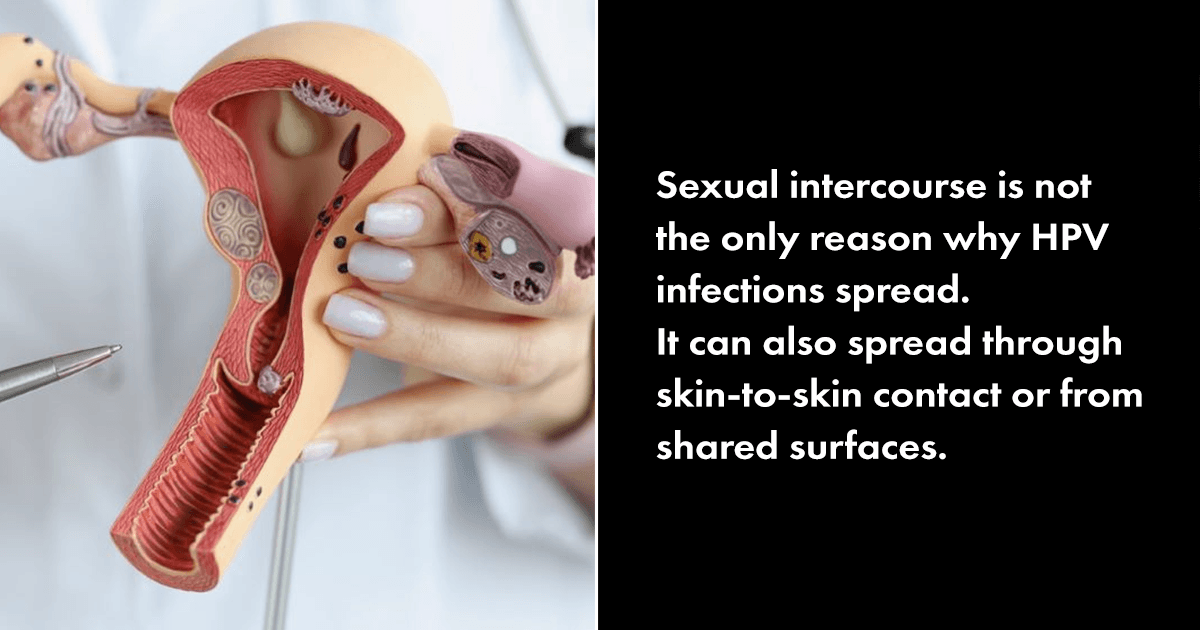The talk of female pleasure is the hush-hush conversation in our society. So, it’s obvious there is a lack of awareness when it comes to sexual disorders women have. Speaking of which, Vaginismus is one sexual disorder that makes intercourse extremely painful. Sometimes even using tampons or menstrual cups become a task.
For the unversed, Vaginismus is a sexual disorder in women when the pelvic muscles tighten or contract. If you have Vaginismus, your vaginal muscle tightens up on its own while having penetrative sex.
Women on Reddit who overcame Vaginismus with the help of meditation and exercises have some tips to share. Read on.
1. “It requires a slow start to sex, lots of foreplay, and trust. That’s about all I can say. If there’s any pressure, it’s simply not gonna happen IMO, and that includes pressure you put yourself under by anxiously thinking “it will never work and our relationship will fail because of my sexual inadequacy”. I really think meditation helped, as it meant I could just breathe and be in the moment rather than worrying all the time.”
2. “I haven’t experienced it myself, but I have worked in a physical therapy clinic where one of the therapists specialized in pelvic floor therapy. One of the things they treat is vaginismus. I believe they teach the person how to consciously relax the pelvic floor muscles to help prevent the spasms associated with vaginismus. They also use dilators that help them learn how to relax with objects in the vagina. We only had 2 of these cases so I don’t really know that much about it, but it was very interesting.”
3. “I have it but I haven’t overcome it yet. I was in physical therapy until they closed due to COVID-19. We learn to control our breathing and use dilators to stretch our muscles. I’m currently working on a medium-size model, although my partner is large. It’s very hard and stressful but I just keep it up. I’m currently addressing the psychological and physical aspects of my condition.”
4. “For me it was a combination of the fear of pain/bleeding (the scarring took forever to stop bleeding when bumped) and the discomfort with sex in general. I actually ended up buying a vibrator that had graduated dilators on it and slowly worked my way up, making it really slowly and figuring out where my comfort zone ended and why. Just trying to be very gradual and forgiving. Now I don’t have any issues with it.”
5. “A lot of mine was based on anxiety and honestly, size. When I was finally with a partner that wasn’t huge, was patient, and that I trusted, I was able to open up and enjoy sex. I kind of made it past the mental hurdle and am now able to relax and be with bigger guys. I know not everyone’s vaginismus is rooted in anxiety though, so YMMV. In my case, my brain got past it and formed new neural pathways of sex not being painful when I had a gentler & smaller partner and we took our time and used lube.”
6. “After my first Pap smear (I cried), the doctor said something like “how are you ever going to have sex or have children?” She acted like I was just being dramatic. Now that I’ve had a decent gyno, that memory blows my mind. Sex started out really hard but it’s gotten easier over time. The first time it worked, I had to be really drunk. But I do want to point out that it improved a lot after I had a baby! No real structural changes down there, just less pain.”
7. “I have vulvodynia, so similar but not quite the same. I tried dilators, lubes, lidocaine, and physical therapy. Eventually, amitriptyline worked for me. I take 50mg every day, it keeps the pain in check. Why do I have it? No sweet clue, it’s been like that since I was a teenager. No history of assault, no trauma. Initially, I thought I was just being a really big baby when I lost my virginity. After all, it’s supposed to hurt right? (Hint: It probably shouldn’t if you’re adequately aroused and lubricated). I remained celibate for 10 years after that until I got a diagnosis.”
8. “I developed it while in a relationship and managed to get it to go away essentially by switching boyfriends and dating someone with a smaller penis. I think it developed because I was really unhappy in the relationship but in deep denial.”
9. “I got dilators from vaginismus.com and a whole bunch of lube. Came with a book that teaches you what exercises to do (Kegels, relaxations, methods of distracting yourself because the muscles spasms are from bracing yourself.) I just slowly worked my way up over a period of 8 months or so. If you can afford a doctor or PT they can offer more professional guidance. It is typically a psychological issue- in fact, I don’t know anyone who has it who actually has a physical problem with their vaginal anatomy. Sometimes it’s nerves, sometimes the history of abuse or assault, sometimes you hold tension from stress in your pelvic floor, sometimes it’s your partner or sexuality.”
10. “I had it in my previous relationship. It was the boyfriend/relationship. I could use tampons but penetration always hurts. He wasn’t huge either so it wasn’t his penis. It was always painful, and while it got better after a few minutes of slow thrusts, he would pull out or push back in and it felt like razor blades. With my current partner (about the same size as my ex, actually), I am incredibly attracted to him and excited to be with him. I’ve felt some initial discomfort if we haven’t had enough foreplay, but never, ever pain.”
11. “I was in an emotionally abusive relationship and had a couple of instances of sexual abuse. I tried dilator therapy and that helped somewhat. The thing that made the most significant difference was talk therapy. I had never opened up about the coercive sexual experiences and always downplayed the abuse. I talked to my therapist about it, did dilation therapy, and took a long break from sex. Then I was pain-free with my next partner.”
12. “My advice: use a water-based lubricant, start small and slow (fingers first), don’t let your partner rush you, make sure it couldn’t be your birth control, do stretches and yoga that target your pelvic floor, and train yourself on some calming techniques. The shittiest thing about vaginismus is that there’s a psychological component too. Your pelvic floor muscles seize up, sex hurts, and from then on you start anticipating pain and anxiety so you tense up even more creating a cycle. So meditation and breathing/calming techniques are just as important as the physical aspects. The mind over matter was the hardest part, but you can do it. Or at least make it a little better. And definitely go see a doctor if you haven’t already.”
Read more: Everything To Know About Postcoital Dysphoria, That Makes You Feel Sad After Sex.

















